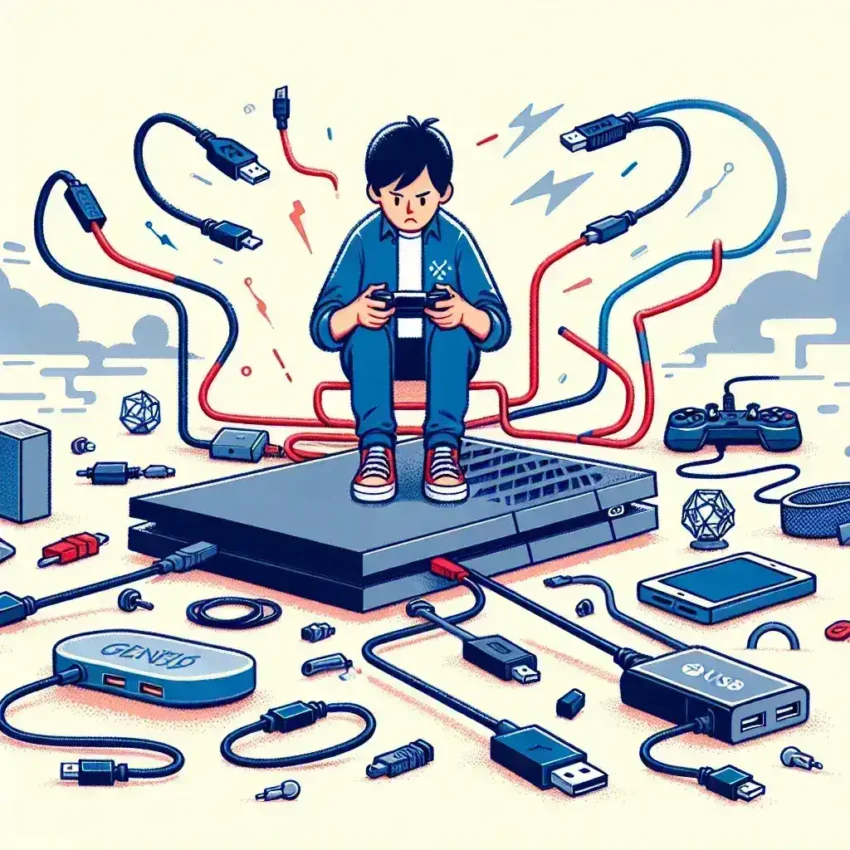Have you ever been in the middle of an intense gaming session or attempting to download your favorite titles on your Xbox console, only to have your devices disconnected randomly? This frustrating issue often leads to ambiguity and disappointment for gamers. Understanding the causes of random USB hub disconnections on your Xbox could help you troubleshoot effectively and get back to your game smoothly.
| Factor | Description |
|---|---|
| Insufficient Power Supply | A USB hub that draws more power than the console can supply may cause disconnections. |
| Cable Quality | Low-quality or damaged cables can lead to unreliable connections. |
| Overloaded USB Hub | Connecting too many devices might exceed the USB hub’s capacity. |
| Software Issues | System updates or bugs can lead to connection problems. |
| Hardware Faults | Faulty ports or the hub itself may also result in device disconnections. |
Understanding USB Hubs and Xbox Console Power
The Xbox console has a limited power output for its USB ports, typically providing around 500mA (milliamps) per port. When devices that require more power—or multiple devices collectively demanding higher power—are connected, the console may struggle to maintain stable connections. This scenario often requires external power to ensure devices operate smoothly.
Common Reasons for USB Device Disconnection
1. Insufficient Power Supply
A key reason your devices might disconnect is an insufficient power supply. If you are using a non-powered USB hub (one that doesn’t come with its own power adapter), it can lead to insufficient power being distributed to all connected devices, causing them to disconnect.
2. Poor Quality Cables
Another significant factor could be the quality of the USB cables you are using. Cheap or worn cables can result in poor connectivity, leading to interruptions that may cause disconnections at inopportune moments.
3. Overloaded USB Hubs
Connecting multiple high-demand devices to a single USB hub can overload it. Each device requires a certain amount of power to operate, and exceeding a hub’s limits will often lead to devices being disconnected. Always check your hub’s specifications to understand its capacity.
4. System Software and Updates
Sometimes, the issue might stem from the Xbox system itself. Software bugs or delays in system updates can cause connectivity issues. Keeping your console software up-to-date can mitigate these problems. Regularly checking for updates and performing them accordingly can avoid random disconnections.
5. Hardware Problems
Lastly, hardware faults cannot be discounted. Problems with the USB ports on the Xbox itself can lead to disconnections. If the ports are dirty, damaged, or malfunctioning, it might be necessary to seek repairs or replacements.
Effective Solutions to Address USB Disconnections
1. Use Powered USB Hubs
If you frequently connect numerous devices to your Xbox console, consider investing in a powered USB hub. These hubs come with their own power supply, ensuring that each device receives the necessary power to function without interruptions.
2. Check and Replace Wiring
Inspect your USB cables for any signs of wear or damage. If you notice frayed wires or loose connections, replace the cables with higher quality ones, preferably certified for gaming use.
3. Limit Connected Devices
To reduce the possibility of disconnections, limit the number of devices connected to your USB hub. Prioritizing the most critical devices can enhance stability and reduce the chances of losing connection.
4. Update System Software
Regularly check for system updates. Ensuring your Xbox software is current can resolve many connectivity issues, as updates often contain bug fixes aimed at improving performance.
5. Clean and Inspect USB Ports
Keep the USB ports on your Xbox clean and free of debris. Dust or dirt buildup can lead to weak connections, which can easily trigger disconnections. Use a can of compressed air or a soft cloth to clean out the USB ports gently.
Conclusion
Random disconnections of USB devices on your Xbox console can be a source of frustration for gamers. Understanding the key factors that contribute to this issue, from insufficient power supply to hardware malfunctions, can help you diagnose the problem effectively. Implementing the solutions provided can significantly enhance connectivity and allow for a seamless gaming experience.

